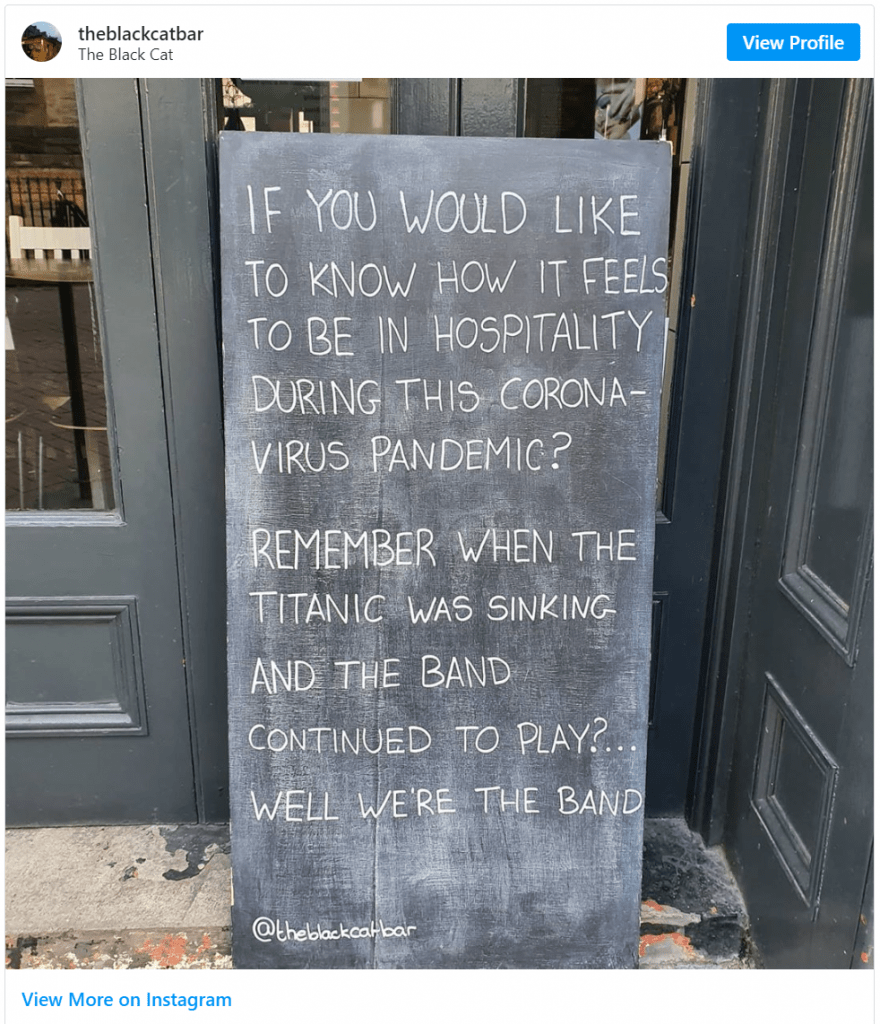Are you a food processor who produces for commercial food service? Are you a fresh produce packer that sells to restaurants? Are you a meat packer that caters to cafeterias and institutions? Then this article is for you.
The Situation
Many of you in the food chain sell into the commercial food service market. Historically speaking, that was an incredibly safe market, and prior to the coronavirus pandemic, the idea of mass shutdown simply didn’t exist. Yet here we are, right smack in the middle of an almost total commercial food service shutdown.
What a change from even January! I have several clients who went from needing extra capacity to a 50-70% reduction in orders, and it happened practically overnight.
The Impact
The elephant in the room is the unknown impact of this pandemic. There are some indications the resulting downturn could be worse than any since the Great Depression. Over 22 million people have filed for unemployment, and this is more than the 1990/91 recession (36 weeks), the 2001 dot-com crash (36 weeks), and is more than half the 2008 recession (79 weeks).
Oh, and it’s ONLY BEEN 4 WEEKS.

Last week, JP Morgan economists predicted a 40% decline in GDP in this quarter and a 20% unemployment rate. Over 2 million homeowners are expected to skip house payments. Restaurants, bars, nightclubs, events, and concerts are for the most part either shutdown (some restaurants are providing takeout). I’m stopping now; we are bombarded daily with bad news and don’t need another dose.
The Good News
Here’s the good news: this article is not about the coronavirus pandemic.
This article IS about business, specifically food processors and packers, answering the challenge. This is about the age old story of smart and well run businesses re-crafting themselves to handle changing times.
The decision to transition from a declining market has always been a scary one, and this pandemic downturn adds complexity. We simply don’t know how long this is going to last. Will an investment in retooling for a different market end up being wasted money and effort? Should we just hunker down, cut costs and wait it out?
I’m here to tell you, you simply can’t afford not to retool. You need to push your business side to market and sell into supermarkets (retail) and retool your packaging to fit. Let’s dive into why.
8 reasons food processors should retool for retail.
(1) Little current demand in commercial food service
This is the obvious one – the restaurant and event industry is practically shut down. While there is a little bit of activity in take out and drive-through, it’s a shadow of its previous self. Enough said.
(2) 20% of all restaurants could be closed permanently
Even if the government allows restaurants to come back to some form of operation in the next few months, we are going to have some problems. The National Restaurant Association says 3%, meaning 30,000 restaurants have already shuttered permanently. UBS analyst Dennis Geiger says “Closer to 20% is possible considering the health and over leverage of independent owners and select franchisees across casual dining in particular.”
(3) Lower capacity at restaurants for at least 24 months
Until the vaccine is out, and until public confidence returns, every restaurant is going to have to change their layout and seating charts. If we assume that the six foot radius is going to be enforced, then we have to assume that most restaurants are going to reduce capacity by more than half, and in some cases restaurants may have seating cut by more than two-thirds. This means the number of table tops turned per hour is going to drop dramatically, and so are sales.
(4) Public institution closures will reduce demand in both cafeteria and local food service
Public entities have far lower tolerance for risk then most private entities. We’ve seen a lot of school closures in elementary and secondary education, we’ve seen almost every university and college go to distance learning models, and there is every possibility that this will continue until a vaccine is in place. This means at Universities and Colleges around the country, both institutional cafeterias and surrounding restaurants are effectively closed indefinitely. The same holds true for secondary and elementary education; no cafeterias open and no students walking over to fast food joints next to the high school.
(5) The New Normal for consumers will keep retail demand high for years
The New Normal is likely going to lean towards the supermarket rather than the restaurant. If we assume that a vaccine is a year-and-a-half away, then we know that even if restaurants return to operation in the next 2 or 3 months, many people won’t be comfortable with the exposure.
The news and precautions have struck fear in a huge majority of the American public. Without the security of a vaccine, it’s likely that Americans demand for eating out will be slow to return.
If we end up with restaurant visits only increasing after the vaccine, we’ll have more than a year and a half of eating habits that don’t include restaurants! I also can’t overlook the family bond that is created during the act of preparing and eating food. Where in the past, most families were going in a million different directions, they are now eating together. It’s likely those habits are not going to simply stop, in fact it’s more likely that they’re going to continue for a significant period of time.
For the first time in at least 50 years, we could be looking at a two-year period where the vast majority of American food consumption flows through the dining room table.
(6) Reduced disposable income for consumers will keep restaurant traffic pushed down even after the vaccine
With over 22 million jobless claims already, not to mention a likely recession looming, Americans simply won’t have the kind of disposable income that they had prior to this debacle. They’re going to be conserving money where they can, and eating in is the likeliest area, especially when they can get three to five meals in the house for the price of one meal in a restaurant.
(7) Mass loss of employee talent will prevent ramp up after the vaccine
If you, as a food processor or packer, decide to hunker down and wait out the crises, you’ll need to reduce plant operations and/or mothball some of your locations. Your cash reserves may be immense, but if this thing goes 24 months I simply don’t see a way for you to keep those employees in place. So even if demand does come back at the end of 24 months, you won’t have the employees and training in place to take advantage of the returning market.
(8) Higher margins will allow retooling cost recovery
This is likely your main concern, and I can hear you now:
Retooling for retail is a major expense and resource drain!
Yup.
We’ll have to change marketing, repurpose sales people, deal with sales channels changing and retool packaging!
Yup.
Retooling requires new programming, it requires new or modified equipment in some cases, and most of all it requires new processes, culture and training!
(Sigh)
You are correct. In addition, your efficiency will drop, as retail runs are typically shorter and slower than commercial food service runs, your employees won’t have any tribal knowledge about the new product, and you’ll have more frequent changeovers.
Your culture will need to shift to one that can handle frequent changeovers and you will need tools that allow you to take action in real time on packaging issues (full disclosure: my company provides a service that does the latter).
What Cost Recovery?!
So what the heck do I mean by cost-recovery?? Well, if we allow my premises from above, our conclusions are:
- Supplier capacity will be reduced (some won’t make it through this period, and some of those that do will look remarkably different)
- Margins will go up as supermarket demand continues to grow
- You are going to make more in margin than before, which will allow you to recover the costs of retooling
- Those food processors that invest in retooling now will be the ones that are positioned for growth when commercial food service kicks back in.
So all in all, cost recovery is highly likely. There is that one extra benefit:
You won’t be closed for business.
David McKay is the President and Founder of Wave7, the leading provider of packaging performance improvement methods and technology. Wave7 is used throughout manufacturing and processing to improve packaging performance and change team culture.
David is responsible for leading four different technology companies over the last 20 years, and his companies have been responsible for releasing over 100 different products, including the first production NIR moisture measurement system for food processing and the first wireless KVM system for data centers.
Sources:
https://www.businessinsider.com/1-in-5-restaurants-could-close-due-to-coronavirus-ubs-2020-4
https://www.wsj.com/articles/coronavirus-hits-already-frail-u-s-farm-economy-11584783001
https://www.wsj.com/articles/the-coronavirus-challenges-facing-u-s-farms-get-workers-keep-them-healthy-11585660358
https://news.yahoo.com/coronavirus-closings-states-closed-restaurants-175011525.html
